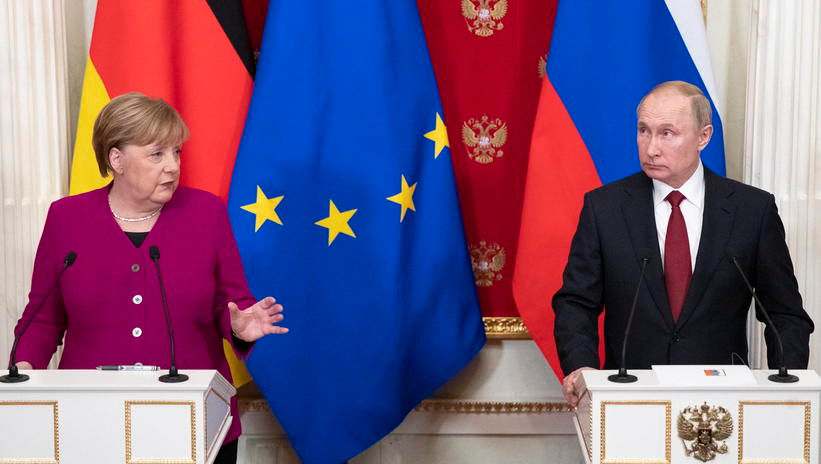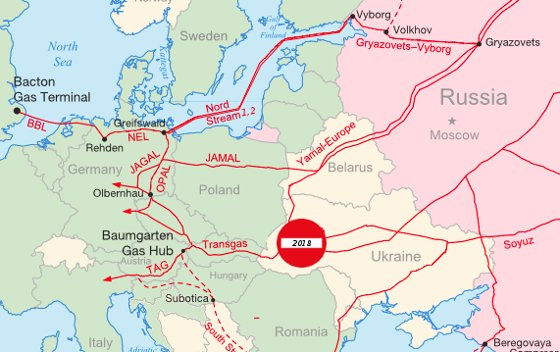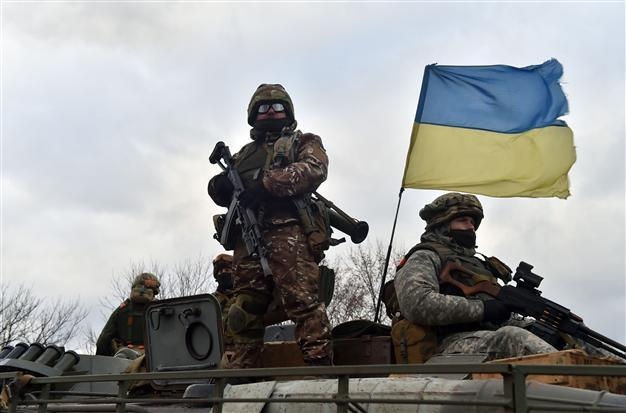Nord Stream 2 – how a questionable child of Russia and Germany exposes Europe’s fragility
- Alisa Pogrebna-Raizman

- Jun 30, 2021
- 4 min read

Nord Stream has been a touchy subject in European politics. The Nord Stream deal was signed between Germany and Russia in 2005 just ten days before the Chancellor of Germany, Gerhard Schröder, was replaced by Angela Merkel in the 2005 German federal election. The first scandal over the project emerged when Schröder lost the elections and joined the board of directors of the Nord Stream AG immediately after, which put a huge question mark over his initial intentions to build the pipeline as a chancellor.
The Nord Stream project consists of two sets of pipelines named Nord Stream 1 and Nord Stream 2, both of which run from Russia to Germany through the Baltic Sea omitting traditional routes through Ukraine, Poland and Belarus. The project raised concerns from the very beginning, but it turned into a full-blown debate in the last years due to the fact that current Russia-EU relations are in the worst shape since the dissolution of the Soviet Union. Russia-EU relations started to deteriorate after Russia's illegal annexation of Crimea in 2014. While EU countries almost unanimously voiced support for Ukraine’s sovereignty and posed sanctions on the Russian government, Nord Stream 2 came into the spotlight as a weak link for many EU members.
For Ukraine, NS2 poses a huge threat of losing its leverage over Russia. Ukraine has been Russia’s gatekeeper to the European gas market for the last thirty years, which gave Kyiv remarkable benefits of being a ‘middle-man’ between Russia and Europe. About 40% of Russian gas flows through Ukraine to Europe, from which Ukraine gains around $2 to $3 billion annually [1]. For Ukraine, losing its current position ‘in-between’ the two powers could also mean losing EU’s interest in supporting Ukraine in the Russo-Ukrainian war. With NS2, Russia might shut down gas transit through Ukraine entirely, which would cut down Ukraine’s GDP by up to 3% and weaken Kyiv’s ability to stand up to aggression from Moscow.
When it comes to Germany’s role, Berlin ended up in a rather tricky situation. During her leadership, Merkel had a firm stance against Russian annexation of Crimean peninsula. However, when it comes to Germany’s support for the Russian gas, Ukraine is usually brushed aside. Merkel adopted a stance that regards the pipeline a purely ‘commercial project’ [2] thus ignoring political aspects of this endeavour. Pressure on Berlin to react in regards to NS2 increased with poisoning and later jailing of Russian opposition leader Alexei Navalny. As the European Parliament called for tighter sanctions and reassessing the EU member states’ cooperation with Russia, including on the matter of Nord Stream 2 [3] , Germany’s willingness to pursue with the project hasn’t shaken.
Both Trump’s and Biden’s administrations heavily opposed the construction of a pipeline. The US underlined that a Russian pipeline would increase Putin’s leverage over Europe. Some European countries agree with that. Poland, Slovakia as well as the Baltic States expressed a strong opposition to the project, as they are the ones potentially affected by it. With the new pipeline heading directly to Western Europe that bypasses Eastern and Central European states, some countries are fearing to become more politically dependent on Russia as it might threaten their gas supply. In retrospect it makes sense, as Eastern and Central European states were under Russian influences since the start of the Cold War. After the dissolution of the Soviet Union only a handful of post-communist countries managed to join the European Union, which ensured them the possibility to cut off Russia’s control. For other countries, who are still pretty much dependent on Russia’s mercy, NS2 can be almost a life-or-death situation. The possibility of abandonment of Yamal-Europe pipeline that goes to Germany through Belarus and Poland in favour of NS2 also raises great concerns in transit countries. Russian annexation of Crimean peninsula and Donbas war had shown that it is not a big deal for Putin to pursue military actions if its satellites decide to go off course. It is hard to predict where Belarus-Russian relations are heading, but Russian military engagement in Belarus is a real and possible development. Any movement of Russian troops towards the external borders of the European Union would further endanger the national security of European states.

Until recently, the current US president remained adamant in his opposition to the project, which raised tensions between Washington and Berlin. On the one hand, the US concerns are of geopolitical nature, but on the other its all about economy. The US is planning on exporting its natural gas to Europe in the form of LNG (liquified natural gas) and Russian gas might get in the way of those plans. However, as the project is 95% complete, the US seems to loosen up. In May 2021, the US decision to waive some of the Trump’s sanctions on the Russian company involved in the construction of NS2 indicated a shift in US approach to the issue. As the pipeline is almost complete, Biden believes further sanctions will only worsen US relations with Germany and Russia [4].
As construction is gradually coming to an end, Nord Stream 2 shows that if you are Putin you will get what you want. Undoubtedly, NS2 ensures Russia a significant geopolitical advantage and strengthening of its position on the European market. Furthermore, Russia will have a possibility to use energy as a political weapon against its less powerful opponents in Europe. While Ukraine and Belarusian opposition expect European Union to stand by their side in the ongoing battles with Russian influences, Western European countries see a great opportunity to secure their energy supply. Austria, Belgium and the Netherlands had chosen to close their eyes on Russia’s ‘little mischiefs’ and hopped on the possibility to benefit from NS2, which divided Europe into those sided with Russia and those against it.
As federal elections in Germany are rapidly approaching, it is plausible that Merkel’s Christian Democratic Union will be replaced by the Green Party, whose stance on Nord Stream 2 is firmly negative. Annalena Baerbock – the leader of the Greens and probable successor of Merkel’s chair – underlines that if her party succeeds in the upcoming elections they will do their best to block the project from being finished [5]. Stopping the pipeline that is already almost finished is difficult to imagine. If this happens, Russia’s geopolitical ambitions will be greatly jeopardized, while European states will probably witness even greater divide between their political and economic aspirations.


Comments